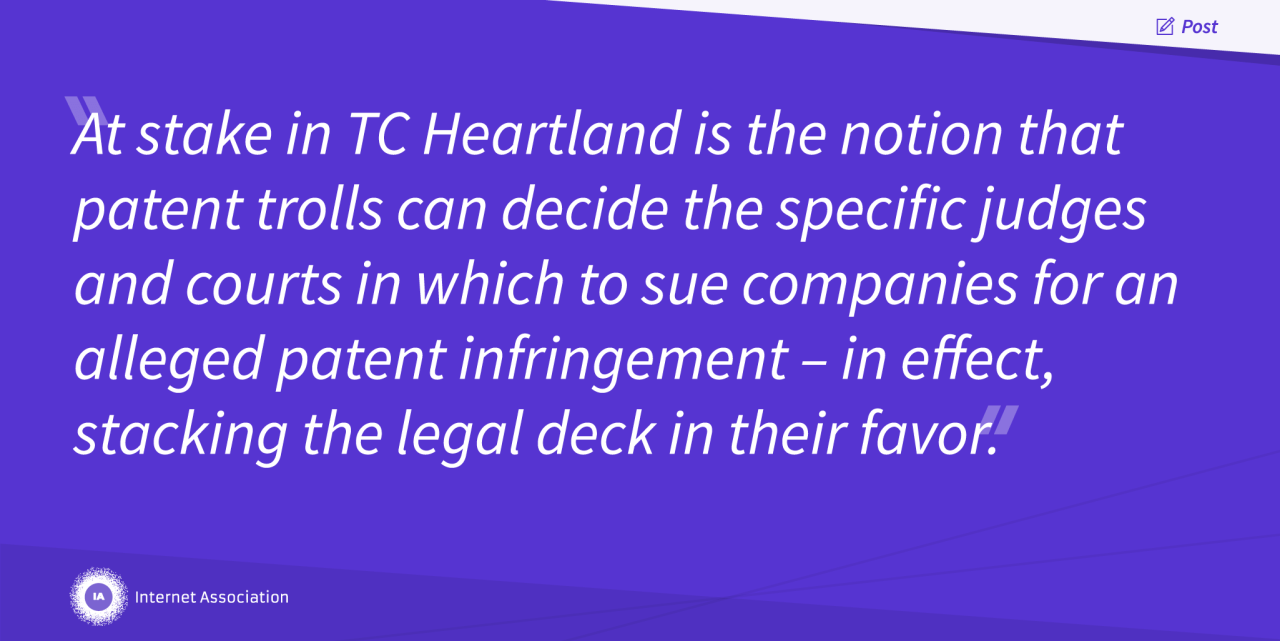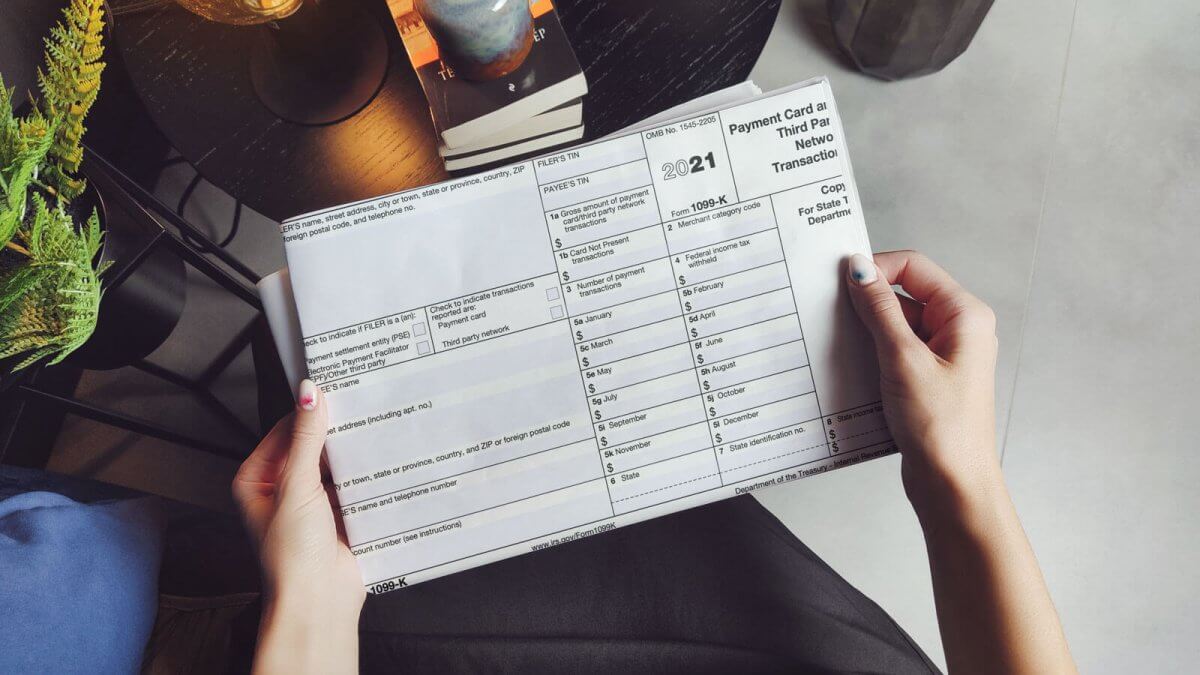
At the Internet Association, we understand there’s no silver bullet that will slay every patent troll. Honest American job creators need a veritable arsenal to fight them back. And one of these bullets in job creators’ battle against patent trolls is currently up for debate in the Supreme Court: venue. Although venue reform is not a silver bullet, we believe it marks a significant step on the path to curbing troll activity to the benefit not only of innovators, but to the U.S. economy as a whole. This is why the Internet Association filed an amicus brief in the TC Heartland case before the Supreme Court today.
If the Supreme Court does the right thing in the TC Heartland case, American businesses will be able to free up tens of millions of dollars to invest in jobs, research, and growth that patent trolls are directly or indirectly holding hostage right now.
At stake in TC Heartland is the notion that patent trolls can decide the specific judges and courts in which to sue companies for an alleged patent infringement – in effect, stacking the legal deck in their favor.
It will come as no surprise that, when given the opportunity, patent trolls will opt for the most favorable possible venue for their cases. These venues tend to be both far away – hundreds or thousands of miles – from the companies trolls are suing and conspicuously more likely to rule in favor of trolls. To illustrate, since 2014, a single judge in the Eastern District of Texas has handled one quarter of all patent cases nationwide and the patent holder wins 72 percent of all jury trials in that district. And these numbers are only getting bigger. In 2001, 29 percent of all patent cases were filed in only five of the 94 court districts. By 2016, 44 percent of all patent cases were filed in just two districts.
The result of this uneven, unfair legal environment is that patents trolls often force small businesses to take money and resources that otherwise would have gone to additional jobs or growth to settle patent troll cases. The average cost to settle a patent case hovers around $300,000 and the preliminary costs of even taking the case to trial stretch even higher. This leaves business owners – who face a seven in 10 chance of losing a jury trial in the Eastern District of Texas – with little choice.
It’s much harder to invest in a new shop floor, or hire new employees when the threat of a spurious patent suit – that, at a minimum, will cost hundreds of thousands of dollars (and possibly millions) – hangs over your head.
The scales of justice should not be tipped against productive businesses and job creators. From the brief:
Forum shopping harms the legal system by creating inequities in which plaintiffs often can make an outcome-determinative choice by selecting venue, and by causing inefficiencies in which cases are litigated far from the location of the parties, the alleged infringement, and the evidence. Indeed, forum shopping in patent litigation adversely affects innovation, which is contrary to the constitutional purpose of the patent system, namely, to promote the progress of science and useful arts. Justice cannot be administered blindly and fairly if one of the parties can engage in forum shopping in order to gain an advantage. To restore justice in patent cases, the Court should resuscitate the patent venue statute by reaffirming that it says what it means and means what it says.
To read the full brief, click here.










